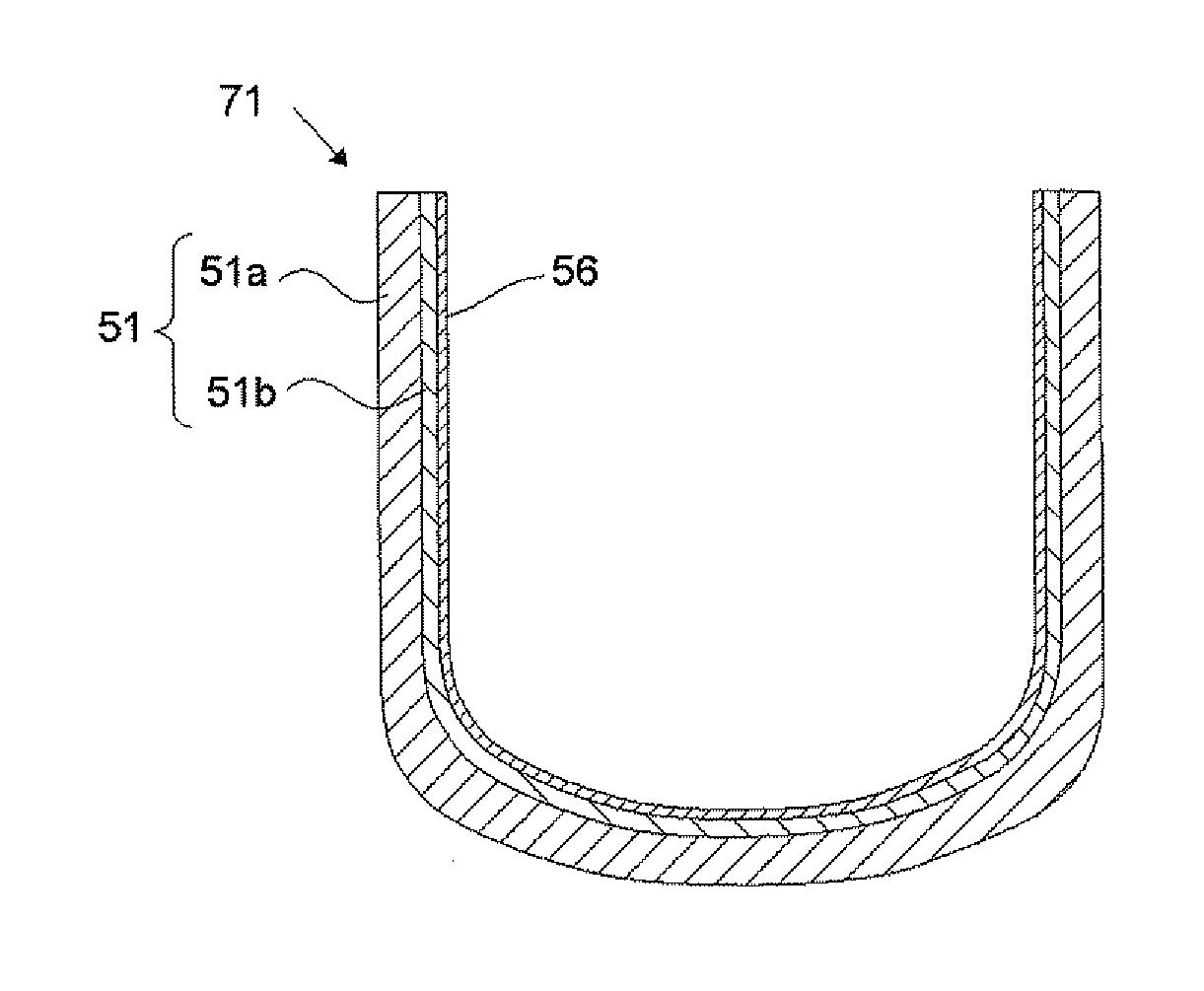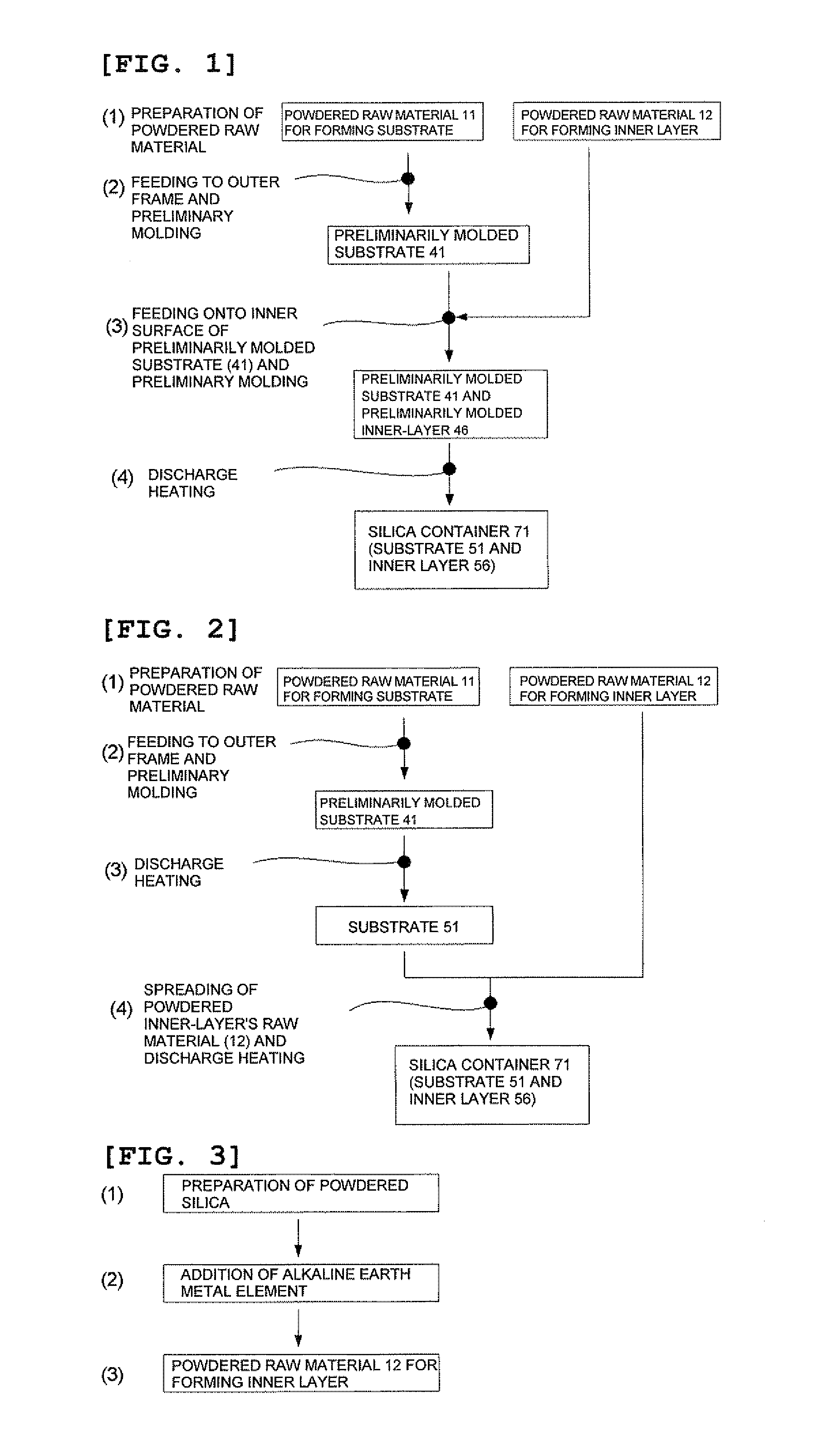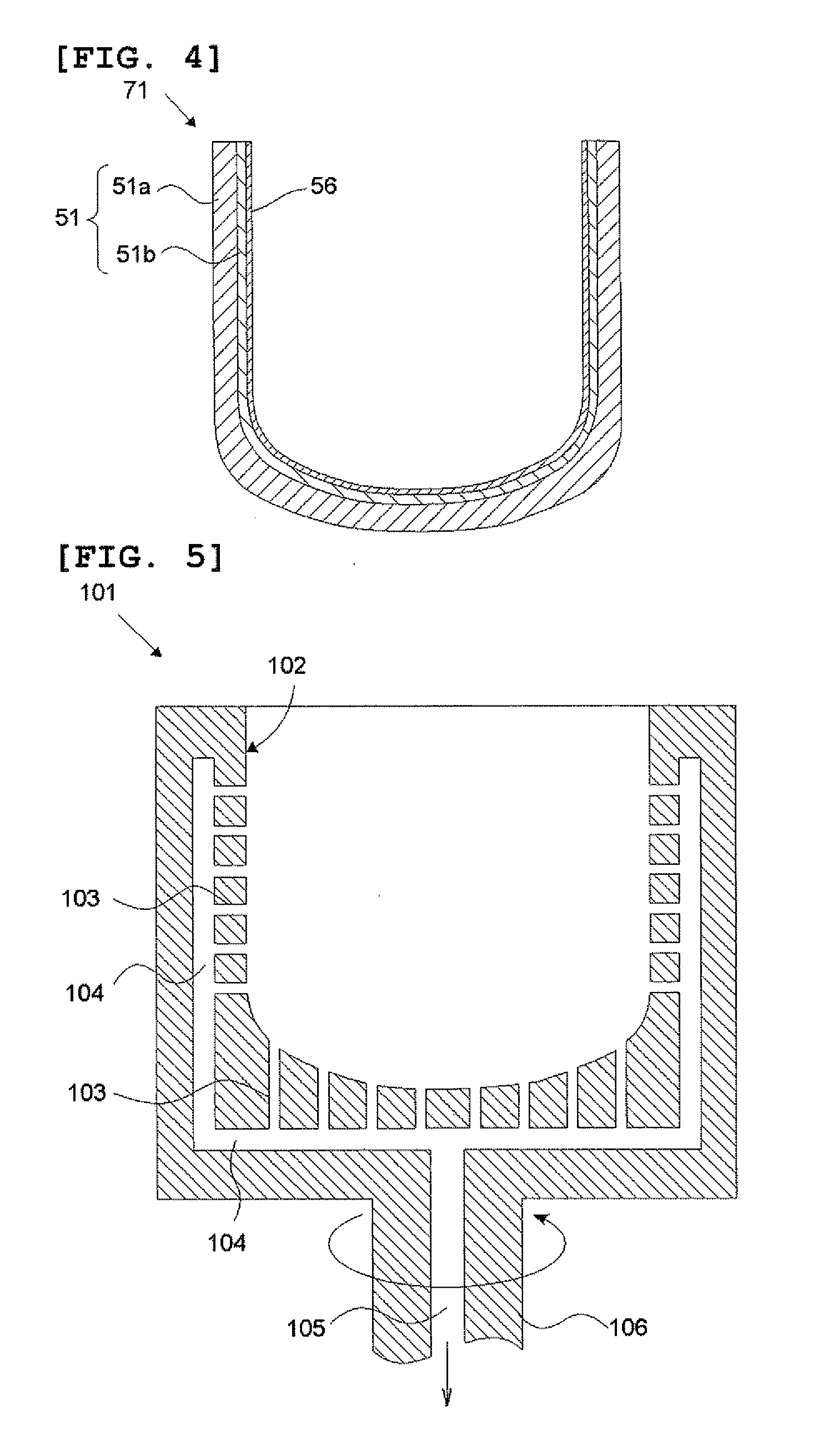Silica container and method for producing the same
a technology of silica and container, applied in the field of silica containers, can solve the problems of shrinkage of molded objects, high cost, high energy consumption, etc., and achieve the effect of suppressing the gaseous bubble generation in the inner wall of the silica container, high durability, and high inhibiting the effect of impurity diffusion
- Summary
- Abstract
- Description
- Claims
- Application Information
AI Technical Summary
Benefits of technology
Problems solved by technology
Method used
Image
Examples
example 1
[0174]According to the method for producing a silica container of the present invention shown in FIG. 1 (the first embodiment), the silica container was produced, as described below.
[0175]Firstly, a powdered natural quartz having purity of 99.999% by weight and particle diameter of 50 to 500 was prepared as the powdered raw material 11 for forming the substrate.
[0176]The powdered raw material 12 for forming the inner layer was prepared according to the procedures as shown in FIG. 3. Specifically, at first, a powdered natural quartz having purity of 99.999% by weight and particle diameter of 50 to 500 μm was prepared (FIG. 3 (1)). Then, the powdered natural quartz thus prepared was soaked in an aqueous ethyl alcohol containing barium nitrate with a prescribed concentration, and then dried by heating in a clean oven at 200° C. for 50 hours (FIG. 3 (2)) to obtain the powdered raw material 12 for forming the inner layer (FIG. 3 (3)).
[0177]Then, the powdered raw material 11 for forming t...
example 2
[0179]The silica container 71 was produced in a manner similar to that of Example 1, except that the powdered raw material 12 for forming the inner layer was doped with Ba, the concentration being made approximately twice the amount in Example 1.
example 3
[0180]The silica container 71 was produced in a manner similar to that of Example 1, except that the powdered raw material 12 for forming the inner layer was doped with Ba, the concentration being made approximately four times of the amount in Example 1, and with Al at the same time.
PUM
| Property | Measurement | Unit |
|---|---|---|
| particle diameter | aaaaa | aaaaa |
| dew-point temperature | aaaaa | aaaaa |
| dew-point temperature | aaaaa | aaaaa |
Abstract
Description
Claims
Application Information
 Login to View More
Login to View More - R&D
- Intellectual Property
- Life Sciences
- Materials
- Tech Scout
- Unparalleled Data Quality
- Higher Quality Content
- 60% Fewer Hallucinations
Browse by: Latest US Patents, China's latest patents, Technical Efficacy Thesaurus, Application Domain, Technology Topic, Popular Technical Reports.
© 2025 PatSnap. All rights reserved.Legal|Privacy policy|Modern Slavery Act Transparency Statement|Sitemap|About US| Contact US: help@patsnap.com



